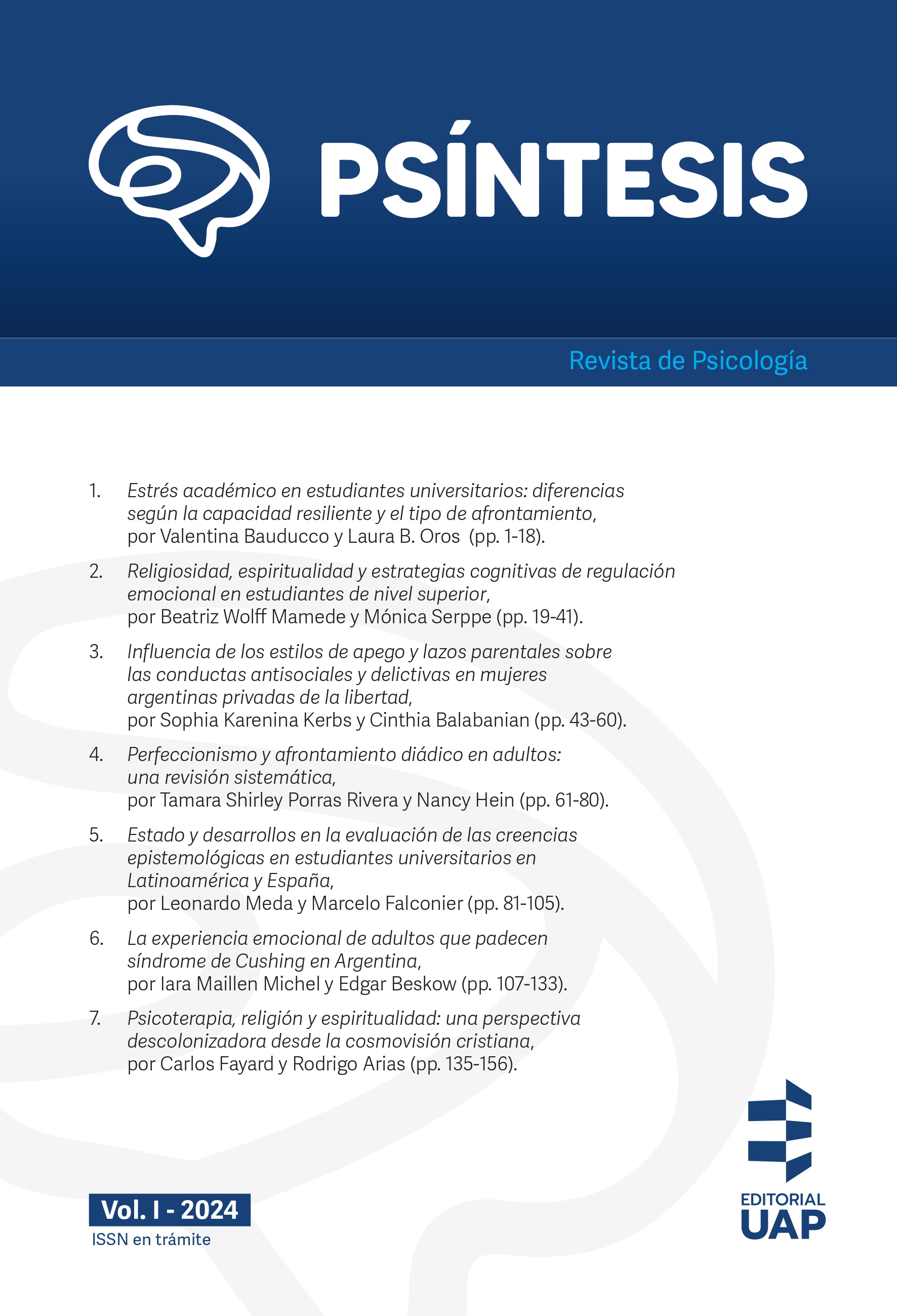Academic stress in university students: Differences according to resilience and coping strategies
Keywords:
Academic stress — Resilience — Coping strategies — University studentsAbstract
The objective of this study was to analyze whether there are significant differences in the experience of academic stress according to the resilient capacity and the type of coping presented by university students. The sample consisted of 200 university students, women and men residing in Argentina, who were studying from the first to the seventh year of study in different careers. The students were selected through a non-probabilistic convenience sampling. A Sociodemographic Questionnaire, the Wagnild and Young Resilience Scale, the Argentine Adaptation of the Moos Coping Response Inventory (CRI-A) for adults, adapted by Mikulic, and the SISCO Macías Academic Stress Inventory were administered. Descriptive analyses were initially carried out. Subsequently, two factorial MANOVAs (Scheffé multivariate analysis of variance with post hoc contrasts) were used. In the first, resilience factors were introduced as independent variables, and in the second, coping factors. In turn, the main results found were that there are no statistically significant differences in experiencing academic stress based on the dimensions of “flexibility and dynamism,” and “self-confidence and independence.” However, it was possible to identify a trend towards significance in the “perseverance and sense of achievement” dimension. On the other hand, academic stress scores decrease as the values of the approach strategy increase, and they rise as avoidance increases. In conclusion, the functional resolution of problems would be a protective factor for academic stress. In contrast, the tendency to avoid problem-solving would be a risk factor for the perception of stress in university students. On the other hand, the capacity for perseverance and sense of achievement could become a stress buffer, to be tested in future studies.Downloads
Published
2024-12-17
Issue
Section
Artículos


